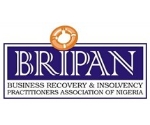Digital Assets Under Nigerian Law: Crypto Currencies Regulation Under the Investments and Securities Act, 2025 Framework
Introduction
Cryptocurrencies are perceived as offering new opportunities for innovation, financial inclusion and cross-border transactions. They appear to make it possible for people to send and receive money directly, without relying on banks or other financial intermediaries. These peer-to-peer transactions are considered fast, global, and often cheaper than traditional alternatives. Cryptocurrencies have also given rise to new financial tools, such as tokenized investments, decentralized finance (DeFi), and digital collectibles (NFTs), broadening access to financial services in both developed and emerging markets.
What then, are Cryptocurrencies? They are digital assets that use secure technology called cryptography and run on decentralized networks called blockchains.
The regulatory environment for Cryptocurrency in Nigeria has been marked by uncertainty, with conflicting signals from the Central Bank of Nigeria (CBN) and the Securities and Exchange Commission (SEC) until very recently, where direction was provided through the enactment of the Investments and Securities Act, 2025 (the “Act”).
From Obscurity to Clarity:
Prior to the Act, the legal status of cryptocurrencies in Nigeria was murky. While the Central Bank of Nigeria (CBN) 2021 directive restricted banks from processing crypto transactions, it did not outlaw their use. Crypto trading thrived informally through peer-to-peer (P2P) networks. However, the Act has now birthed a new chapter in Nigeria’s approach to digital assets. For the first time, the Act formally recognizes cryptocurrencies and other digital assets as securities and places them under the regulatory oversight of SEC. This landmark legislation lays the legal foundation for a safer, more transparent, and innovation-ready crypto ecosystem in Nigeria.
Under the Act, “Securities” are defined to include digital tokens and virtual assets offered as investment instruments. This statutory inclusion establishes cryptocurrencies, such as Bitcoin, Ether, and stablecoins, as regulated digital assets under Nigerian law.
SEC as the Primary Regulatory Authority
The Act empowers SEC as the lead regulator of Nigeria’s capital markets, including the digital asset space, ending the friction which existed between SEC and the CBN. Under the Act, SEC is empowered to:
- Regulate virtual asset service providers (VASPs), digital asset operators (DAPs), and exchanges.
- Issue rules governing the issuance and exchange of digital assets.
- Require all persons and entities engaged in SEC-regulated activities, including VASPs, to be registered as capital market operators.
Compliance and Regulatory Obligations for Crypto Operators
The Act introduces rigorous compliance standards for digital asset firms, elevating them to the same regulatory tier as traditional financial intermediaries. Key requirements include:
- Licensing and Registration:
All VASPs, exchanges, and wallet providers must register with the SEC. - Investor Protection Fund
VASPs and other exchanges are required to maintain an investor protection fund. This fund offers compensation to investors in cases of fraud, insolvency, or misconduct.
- Anti-Fraud and Market Conduct Rules:
Insider trading, market manipulation, and false disclosures within a VASP is strictly prohibited. This allows for transparency and fairness in the markets.
- Corporate Governance and Reporting:
Sections 88–92 impose governance and reporting obligations on Virtual Asset Service Providers (VASPs) and related entities. Operators must implement internal controls, maintain proper books, and submit periodic audited financial statements to the SEC. - The Act also outlines standards for the conduct of directors of Crypto Operators, requiring them to act with integrity, avoid conflicts of interest, and uphold fiduciary duties. These measures align the digital asset space with the governance standards of traditional capital markets, fostering transparency and investor confidence.
- Anti Money Laundering (AML) and /Counter Terrorism Financing (CFT) Compliance:
Licensed VASPs must implement robust AML and CFT protocols, aligning with the Financial Action Task Force (FATF) Recommendation 15.
Penalties for Non-Compliance:
Violations of registration and compliance requirements may result in a range of sanctions. These sanctions include administrative fines, suspension or revocation of licenses, and, for serious offenses, criminal prosecution, which can carry penalties of up to five years’ imprisonment.
Conclusion
The Investments and Securities Act, 2025 represents a landmark transformation in Nigeria’s approach to digital finance. By legally recognizing cryptocurrencies as securities, assigning regulatory functions to the SEC, and setting out a robust compliance regime, Nigeria has moved from regulatory fragmentation to structured oversight.
The future of crypto in Nigeria now rests on effective implementation, institutional cooperation, and a commitment to supporting innovation within a secure, well-regulated environment.
If you want to know more about the regulation of crypto currencies in Nigeria or seek to register and obtain licenses to operate a crypto business in Nigeria, contact Berkeley Legal at info@berkeleylp.com
The information provided in this article is for general informational purposes only and does not constitute legal advice.







